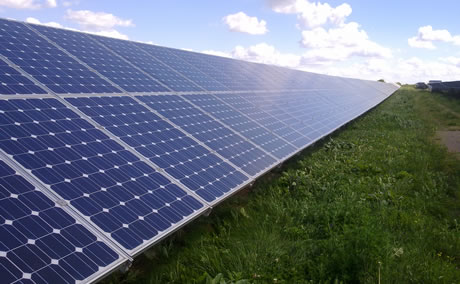
Industry experts have warned that the long term trend for energy prices looks set to rise by as much as 10 per cent over coming years. With increasing energy costs, all farm businesses continually need to assess energy use and identify energy saving opportunities, many often will require little or no need for capital spend.
Ruth Kendal, Rural economy consultant at ADAS, says: "Farmers and land owners need to assess farm operations to ensure they are as resource efficient as possible to sustain profitability.
"Saving energy, water and inputs have always been a priority for farmers – resourceful land managers realise the positive effect efficient resource use has on profitability. Understanding your energy use is the first step to realising significant savings on your energy bills and to identify areas where energy can be used more efficiently."
There is a clear link between resource efficiency and financial savings, but now farmers are also under additional pressure to ensure their environmental performance is up to scratch.
Like other commercial sectors, agriculture has targets to meet in the Low Carbon Transition Plan, a government White Paper designed to move the UK towards a more sustainable future. Agriculture, however, has a complex relationship with the environment, action to reduce carbon emissions in one area of the business may actually lead to an increase in output elsewhere.
Ruth continues: "A good example is outsourcing the disposal of farm waste as it may reduce an operation’s direct emissions, but greenhouse gas output associated with transport and processing may ultimately lead to an increase in the overall emissions total."
"Farmers could also look to save energy and create an income stream by installing a renewable energy system that is covered by the Government’s new Feed-in Tariff scheme. The Department of Energy and Climate Change (DECC) has used powers in the Energy Act 2008 to introduce the Feed-in Tariffs (FiTs) system to incentivise small scale (less than 5MW), low carbon electricity generation. The FITs scheme went live on 1 April 2010.
Through the use of FiTs the Government hopes to encourage deployment of additional low carbon electricity generation, particularly by organisations, businesses, communities and individuals who are not traditionally engaged in the electricity market.
This "clean energy cashback" income stream will allow many people to invest in small scale low carbon electricity, in return for a guaranteed payment both for the electricity they generate and export. The CSR of 20 October 2010 also announced that FITs will be reviewed in 2012, unless higher than expected deployment requires an early review. The Government has identified scope to cut FIT costs by 10 per cent, to be achieved as part of its next review.
Small-scale low-carbon electricity technologies eligible for FITs are:
• Wind
• Solar photovoltaics (PV)
• Hydro
• Anaerobic digestion and
• Domestic scale microCHP (with a capacity of 2kW or less)*
• Domestic scale microCHP pilot will support up to 30,000 installations with a review to start when the 12,000th installation is completed
• Solid or liquid biomass technologies continue to be supported under the Renewables Obligation (RO) at all scales
The main amount paid by the Feed-In Tariffs varies depending on the size and type of system."
Depending on circumstances, a more sustainable solution could be to build the infrastructure to extract energy from waste. Ultimately, however, each farm is different and a bespoke approach is needed to help land managers improve their resource efficiency.
Farm Resource Efficiency Delivered is an ADAS service for farmers, growers and processors. It will deliver cost savings by increasing the efficiency in which energy water and nutrients are used and will identify opportunities for energy generation.
The benefits to farmers of this service will be reduced costs, improved environmental performance, reduction in their carbon footprint, compliance with legislation and becoming more sustainable by improving on farm energy, water and input use. ADAS can also provide practical support and project management for the implementation of resource efficiency solutions.
